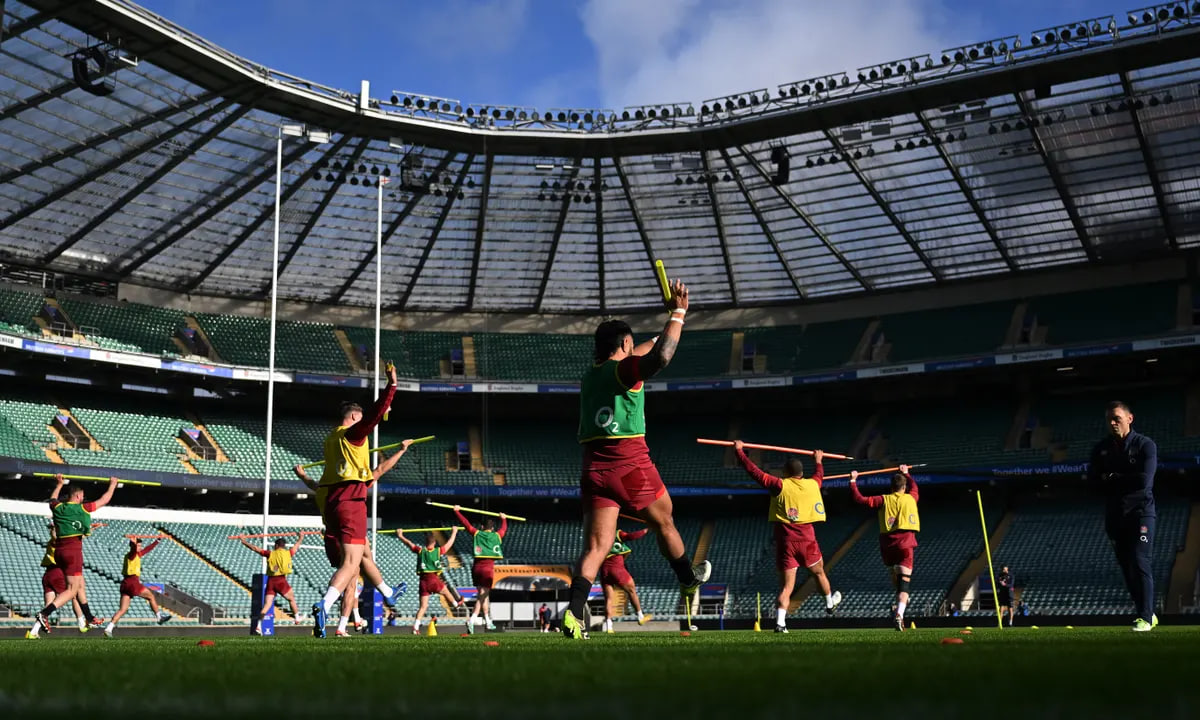RFU abandons Twickenham sale, drops bid for 50% of Wembley
In a strategic pivot that underscores its commitment to preserving tradition while embracing progress, the Rugby Football Union (RFU) has made a decisive move to abandon a bold proposal to sell Twickenham and acquire a 50% stake in Wembley Stadium from the Football Association (FA). Instead, the RFU is charting a course focused on revitalizing its historic home ground, Twickenham, through ambitious plans totaling £663 million aimed at modernizing and enhancing the iconic venue.
Since its establishment as the spiritual home of English rugby in 1909, Twickenham Stadium has stood as a symbol of the sport’s enduring legacy. Recognizing the need for strategic reinvention, the RFU is embarking on a transformative journey to revamp Twickenham as part of its “masterplan program,” marking a pivotal moment in the stadium’s storied history.
At the heart of the RFU’s vision lies a commitment to preserving Twickenham’s heritage while ushering in a new era of innovation and sustainability. While previous discussions entertained the prospect of relocating to Wembley Stadium, the RFU has unequivocally reaffirmed its dedication to the preservation and enhancement of Twickenham as the spiritual home of English rugby.
In addition to physical renovations, the RFU is also committed to addressing critical transportation challenges that have historically plagued matchday experiences at Twickenham. With an emphasis on reducing reliance on Twickenham rail station and alleviating congestion, the RFU is exploring innovative solutions, including the potential implementation of riverboat services to improve accessibility and ease congestion on matchdays.
Beyond its immediate impact on Twickenham’s infrastructure, the RFU’s redevelopment plans are underpinned by a broader strategic vision aimed at future-proofing the stadium for generations to come. By adopting a holistic approach to stadium development, the RFU seeks to ensure that Twickenham remains a dynamic and sustainable venue capable of meeting the evolving needs of rugby enthusiasts worldwide.
While the RFU’s ambitious plans for Twickenham represent a significant financial investment, they are grounded in a pragmatic recognition of the stadium’s pivotal role in driving revenue and supporting the growth of the game. As the primary revenue driver for the RFU, Twickenham plays a crucial role in funding initiatives at all levels of the sport, from community programs to elite player development.
In outlining its rationale for the redevelopment, the RFU underscores the importance of maintaining Twickenham’s competitive edge in an increasingly crowded sports landscape. By prioritizing investments in infrastructure and fan experience, the RFU aims to secure Twickenham’s position as a premier destination for rugby enthusiasts while enhancing its long-term viability and sustainability.
As the RFU embarks on this transformative journey, it remains cognizant of the challenges and complexities inherent in such ambitious endeavors. While the projected cost of £663 million represents a significant financial commitment, the RFU is mindful of the need to balance immediate priorities with long-term sustainability, ensuring that investments are made judiciously and with an eye toward future growth and development.
In charting a bold new course for Twickenham’s future, the RFU is guided by a steadfast commitment to excellence and innovation. Through strategic reinvention and visionary leadership, the RFU seeks to usher in a new era of prosperity and growth for English rugby, ensuring that Twickenham remains a beacon of sporting excellence for generations to come.







